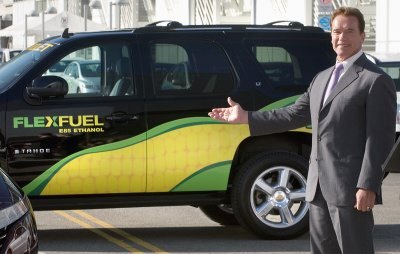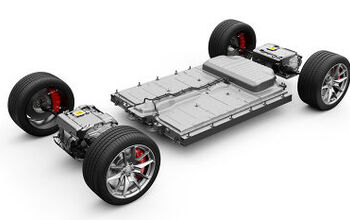E85 Boondoggle Of The Day: Government Flex Fuel Mandates Increased Fuel Consumption
The Washington Post notes a lesson in unintended consequences: a US government initiative to reduce gasoline consumption has been a miserable failure. The Energy Policy Act of 1992 (EPAct) mandated that government agencies purchase flex-fuel vehicles for 75 percent of light duty fleets, hoping to spur automakers into building more fuel efficient vehicles and decrease gasoline consumption. And they were built: the Ford Taurus FFV 3.0 and Ranger pickup, GM compact pickups, Chrysler minivans, among many others. For years, agencies ignored EPAct; enforcement came in 1999 after environmental groups Sierra Club and Bluewater Network sued to force compliance. Problem was, replacement flex-fuel vehicles had larger engines in their predecessors and often ran on gasoline, usually due to difficulty obtaining E85. For the 2008-2009 period, fully 61% of vehicles had exemptions to run on gasoline. The mandate resulted in flex-fuel vehicles purchased for Puerto Rico and Hawaii, where E85 pumps don’t exist as it’s quite expensive to ship large quantities of ethanol. In some locations, said pumps are nearby but don’t accept government credit cards. So, despite all good intentions, the result is an increase in government gasoline consumption. Not mentioned in the article was that the billions of dollars in purchases went almost, if not wholly to the Detroit 2.8, as import manufacturers (still) don’t offer many flex-fuel cars or trucks.
More by Richard Chen


































Comments
Join the conversation
Typical gummint foulup. I saw the same kind of things in state government. But the important thing is to demonstrate correct intentions, not achieve something substantive.
Missouri retailers selling gasoline without ethanol http://news.yahoo.com/s/nm/20081126/us_nm/us_missouri_ethanol;_ylt=AseYutd9o8.FXxE335no5N1pl88F "If the price for ethanol is more expensive than the price for gasoline, retailers can sell straight gasoline rather than with ethanol," Hayes said explaining state law.
Reminds me of the time there was a drought and the city turned off the water in a large fountain. But the fountain didn't pull water from the water lines. It just recycled the water back out the top of the fountain via it's pumps. The loss due to evaporation was insignificant. But it made the government look good while it put water restrictions on the residents.
I have heard both Hawaii and Puerto Rico have large sugarcane fields. Too bad they both export sugar and import gasoline. To me anyway it seems silly to pay to transport sugar to market on the mainland and then pay to ship gasoline to the island. I think it might be easier to just convert the sugar to ethanol on the island. 12% unemployment on Puerto Rico, they could use the jobs.